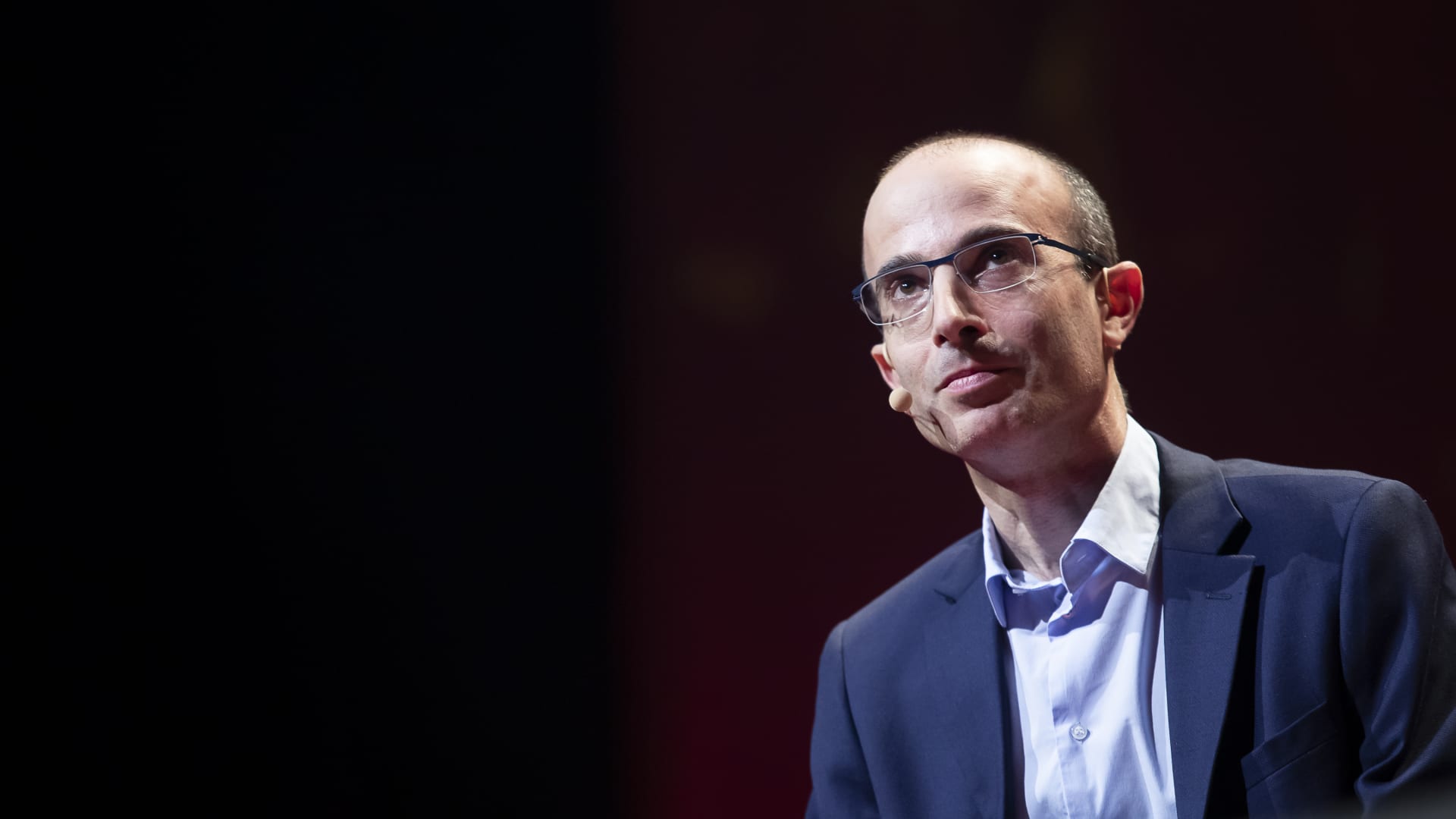
Israeli author, historian and professor Yuval Noah Harari has spoken out frequently against President Vladimir Putin’s war in Ukraine, adding that it has had the unintended consequence of forging greater unity between Europe and the U.S.
Kristof Van Accom | AFP | Getty Images
Seven weeks into Russia’s war with Ukraine, still escalating tensions position society at perhaps the “most dangerous moment in world history since the Cuban missile crisis,” according to Israeli historian and bestselling author Yuval Noah Harari.
The “Sapiens” author said the growing risk that Russia may turn to nuclear weapons or other forms of chemical or biological warfare to advance its onslaught posed an existential threat to humanity.
“We are maybe in the most dangerous moment in world history since the Cuban missile crisis when a nuclear war is suddenly a possibility,” Harari told CNBC’s Geoff Cutmore Wednesday.
The Cuban missile crisis of 1962 refers to a period of direct conflict between the U.S. and the then-Soviet Union, often considered the closest the world has come to nuclear war.
Anybody who has these fantasies about marching to Moscow, forget about them as quickly as possible.
Yuval Noah Harari
historian, lecturer and author
While acknowledging the current threat of nuclear war is “not very likely,” Harari said that everybody — governments and individuals — should be “very concerned.”
“It’s a possibility, a real possibility that we need to consider. And that’s terrible news for the whole human race,” he said.
Still, Harari warned that it is not for Western allies to try to preempt such action by seeking regime change in Russia. Rather, they should focus on further empowering Ukraine to defeat Russian forces on the ground and restore peace.
“Anybody who has these fantasies about marching to Moscow, forget about them as quickly as possible,” he said, noting that such moves would further provoke the Kremlin.
“The aim of the war should be to protect the freedom of Ukraine, and not to change Moscow. This is up to the Russian people,” he added.
A historic turning point
Harari, a lecturer in the Department of History at the Hebrew University of Jerusalem, said the ultimate outcome of the war could mark a decisive turning point in how governments manage future threats.
If Russian President Vladimir Putin wins the war, he said, more countries would be inclined — or forced — to increase their military spending to the detriment of other public services.
It is not clear how much Russia invests in its defense spending, though Harari put estimates at around 20%. Already, we have seen recent moves or commitments by governments to increase their defense spending. Just days into the conflict, Germany announced it would significantly increase its defense spending to more than 2% of its economic output.
If we are not careful we will slide back into the jungle of war and violence in which countries are forced to spend far more on tanks and missiles.
Yuval Noah Harari
historian, lecturer and author
“If defense budgets around the world would be 20% instead of 6%, that would come at the expense of our healthcare, of our welfare, and it would also come at the expense of fighting other dangers like climate change,” he said.
“This would be a terrible catastrophe for the whole of humanity,” he said, adding that a peaceful resolution is not just in the interests of Ukraine and its immediate neighbors, but wider society.
“It’s really about defending the peace and the kind of world we got used to,” he said. “We got so used to it that we take it for granted. But if we are not careful we will slide back into the jungle of war and violence in which countries are forced to spend far more on tanks and missiles and far less on teachers and nurses and welfare systems.”
Harari did, however, see some cause for cautious optimism if Western allies were to succeed in bringing about a peaceful end to the conflict.
“If Putin loses and is seen to lose, that will actually safeguard the previous order. When there is a norm and somebody violates the norm and is punished for that, then this actually strengthens the norm,” he said.







